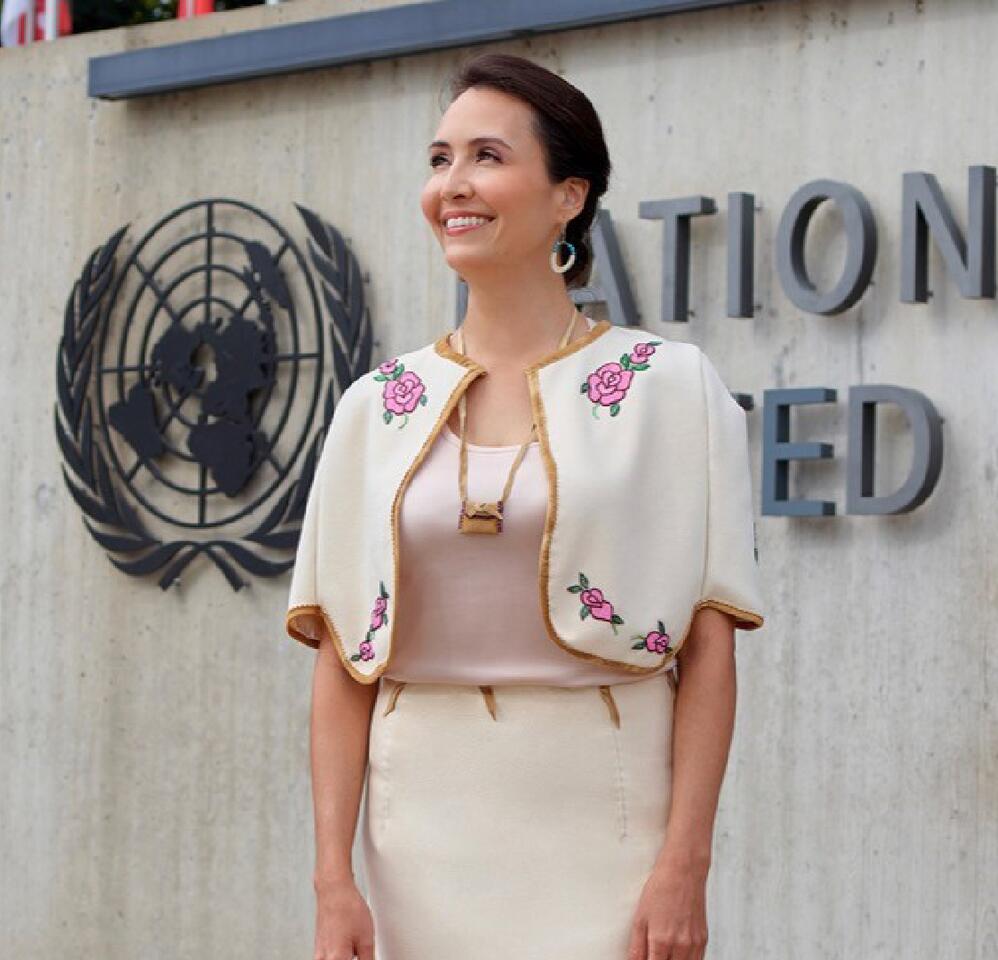
Changemakers
Hunting, fishing… and lawyering
The Dene lawyer devoted to securing self‑determination for First Nations.
Photo: Jana Anhalt
Eighty kilometres above the Arctic Circle in the Northwest Territories sits the tiny outpost of Colville Lake. Here, about 150 Dene members of the Behdzi Ahda" First Nation live a traditional lifestyle, hunting, trapping, and fishing.
It’s where Jennifer Duncan spent her childhood summers, gambolling about in handmade beaded moccasins and setting nets to catch white fish and trout. During winter visits, Duncan’s friend Margaret would hitch up a dog team, and the pair would mush to the lake, chiselling down through ice to reach their nets.
“It was instilled in me that it’s important to have those skills, to not have to rely on anyone else to survive or get your food,” Duncan says today from her eponymous law office in West Vancouver. If they were still and quiet, she and her cousins were permitted to attend meetings between the community’s hunters and trappers, who along with the elders and women would decide harvest matters. “We’d be there and soak it all in,” remembers Duncan.
The conversations would often turn to Treaty 11, an agreement signed in 1921 that articulates northern First Nations’ land rights and right to self-government. “The Canadian government was not living up to the promises that they made to us,” says Duncan, whose sense of injustice led her to pursue a law degree at UBC. She has since devoted her career to helping Indigenous governments achieve self‑governance and assert land claims and control over natural resources like caribou.
Duncan’s latest battle is with the Correctional Service of Canada (CSC). While Indigenous people make up only five per cent of the general population, Indigenous men and women respectively make up a shocking 32 and 50 per cent of federal prison populations. The prison system is seen as an extension of the residential school system, and First Nations endure not only harsher penalties but also vicious treatment at the hands of racist guards. “There’s so much injustice happening, and I’m honoured to advance the voices of those who are incarcerated, and who are dying and being tortured in prisons,” says Duncan, who earlier this year spoke about these issues before the UN Human Rights Council in Geneva.
She strongly supports implementation of section 81 of the Corrections and Conditional Services Act, which allows for the creation of alternatives to incarceration based on Indigenous legal traditions. “I want to see Canada commit to funding and opening up more Indigenous-led healing lodges,” says Duncan. “That will immediately bring down those incarceration numbers.”
Going up against huge, seemingly impenetrable bodies like CSC can be exhausting. To regain her grounding, Duncan still spends the fall season up north, sometimes going on the annual caribou hunt, other times fishing. “I have that experience of being out on the water, back on the lake checking the nets, harvesting fish. I look forward to being there – being with family.”































